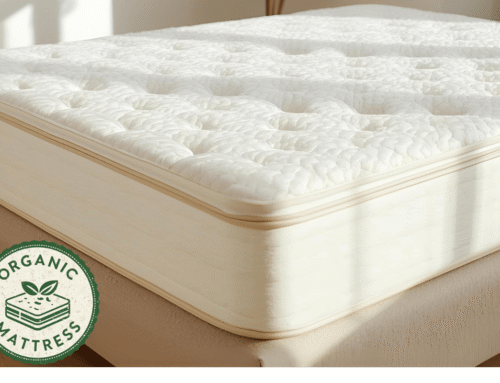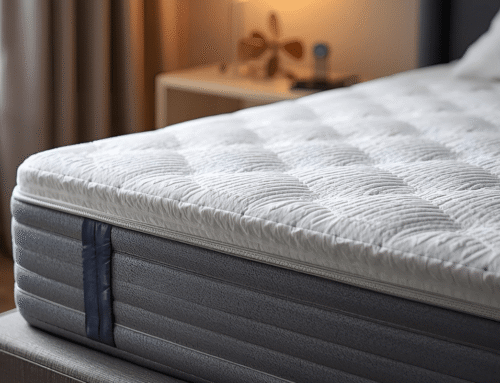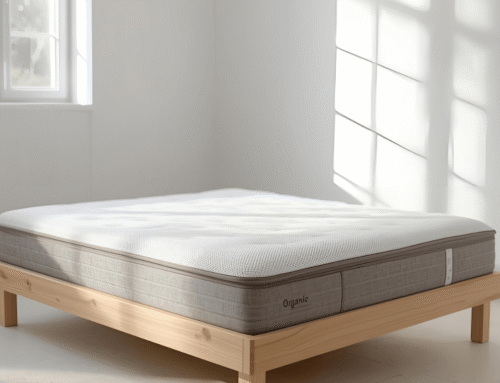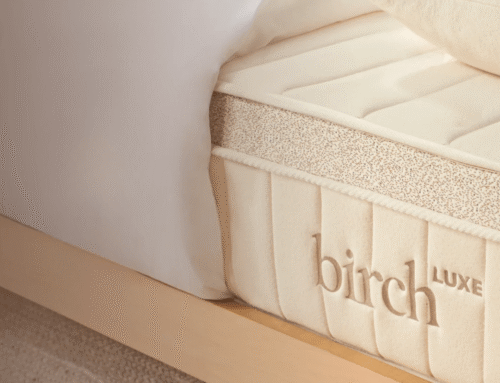Waking up sore, tossing all night, or shifting around just to feel comfortable? That might be your mattress telling you it’s worn out. Blaming stress or poor sleep habits, only to realize the bed was the problem. You get used to the discomfort until one day, it becomes impossible to ignore.
Most decent mattresses last about 7 to 10 years, though that depends on how you sleep and how well you take care of it. You’ll notice sagging at the edges, uneven support in the middle, and strange squeaks years before reaching that 10-year point. It isn’t just about comfort. Poor sleep messes with your mood and drains your energy during the day.
Understanding what mattresses are made of and what common mattress materials are can help you identify the root of the problem. It’s also important to know if mattresses are made in the USA, as this can affect quality and craftsmanship.
We’ll walk you through signs you shouldn’t ignore—dents, weird smells, waking up tired, or even crashing on the couch just to get some rest. Some signs show up gradually while others catch you off guard. If sleep doesn’t feel right anymore, your mattress probably isn’t holding up.
Key Takeaways
- If your mattress sags or dips in the middle, it’s time to start shopping.
- Waking up stiff or sore could mean your mattress is no longer doing its job.
- Struggling with sneezing, sniffling, or itchy eyes at night means your mattress might be harboring dust mites or allergens.
- If you’re tossing and turning all night, your mattress could be to blame.
- When your mattress hits the 7 to 10-years, it may be time to upgrade. Even the best beds wear out with age.

Your Mattress Is Over 7–10 Years Old
Your mattress might look okay on the outside, but over time, you start feeling the difference in your sleep. The foam doesn’t bounce back the way it used to, and you wake up with more stiffness than usual. It’s easy to blame stress or a busy week, but your bed could be the real reason. Even if you’ve taken good care of it, after 7 to 10 years, your mattress just isn’t the same. Springs soften, the support shifts, and you start noticing that your body doesn’t feel as relaxed in the morning. You might not see any sagging, but your back probably knows the truth.
You spend a third of your life sleeping, so it makes sense that your bed wears down over time. If it’s been over a decade since you last upgraded, your sleep quality has probably taken a hit. You shouldn’t have to settle for restless nights and stiff mornings just because your mattress still looks fine.
The history of mattresses is quite fascinating, with innovation evolving to meet the needs of better sleep. Understanding the anatomy of your bed can also help you determine its lifespan. Over time, mattresses lose their ability to provide the support and comfort they once did, and knowing how often to replace your mattress can ensure you’re getting the restful sleep you deserve.
You Wake Up With Aches And Pains
You know that dull ache in your lower back or shoulders that greets you every morning? That isn’t just age or stress. It usually means your mattress no longer pulls its weight. If your bed dips or sags, your spine shifts into uncomfortable angles overnight, and your joints start to react. The pain doesn’t hit all at once. It builds slowly until you can’t ignore it. You don’t need something high-end, but you do need a mattress that keeps your body aligned.
Swap out that worn mattress for one that supports your pressure points, and you’ll feel the relief. You might still wake up tired some days, but your body won’t feel stiff or sore the way it used to. How you feel in the morning says a lot about what your mattress is doing for you.
Your Mattress Is Sagging Or Has Lumps
You’ll know something’s off the moment you wake up sore or stiff. A sagging mattress usually shows up right where you sleep the most—your back, your hips, or your shoulders. You start to feel like you’re sinking instead of resting. Lumps can cause just as many issues. You know how uneven spots mess with your sleep, and no amount of tossing around seems to help. The bed should be supporting you, but instead, it works against your comfort.
Some people try flipping or rotating to fix things, but that only works for so long. You deserve a bed that stays even and supportive, not one that dips or bulges every night. If your sleep feels more exhausting than restful, it’s probably time to move on.
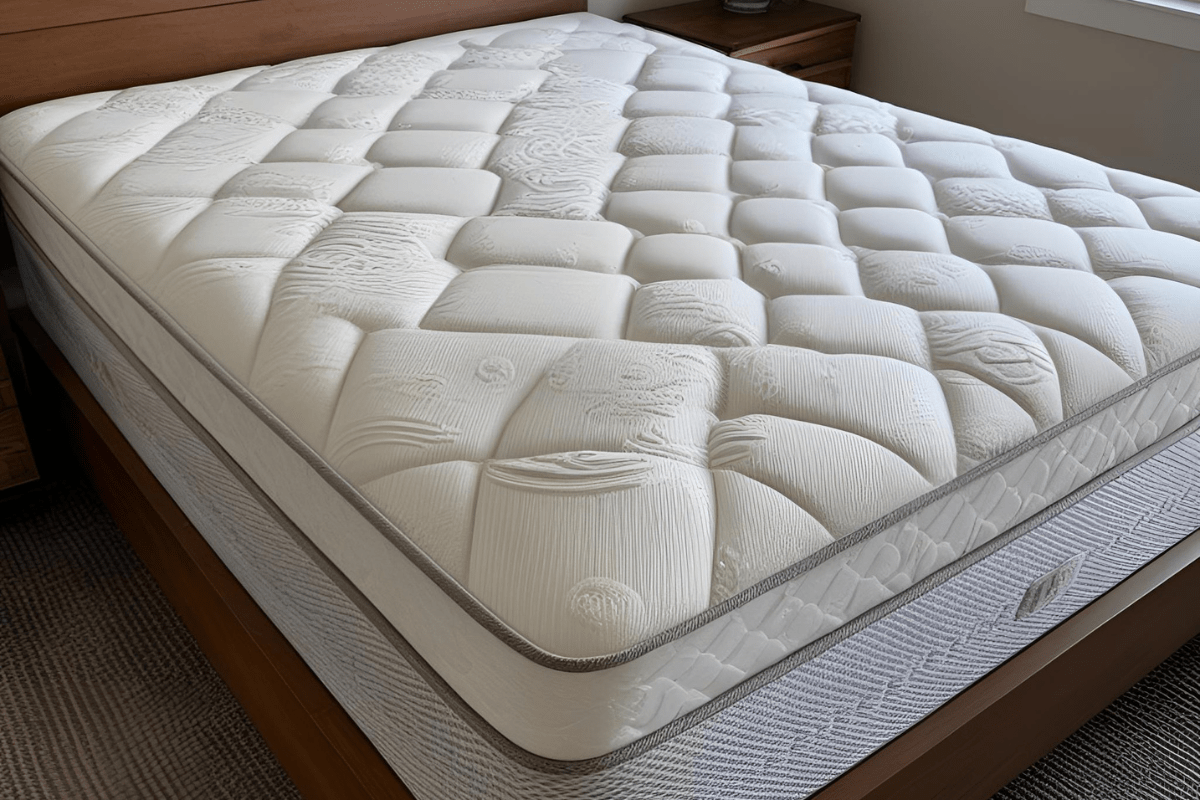
You’re Tossing And Turning At Night
You’ve probably had nights where, no matter how long you sleep, you wake up feeling tired. It’s frustrating, and it might be because of your mattress. Over time, mattresses lose their ability to provide proper support, leaving you feeling groggy and irritable the next day.
A worn-out mattress doesn’t respond to your body like it used to, which can make sleep restless. You might find yourself tossing and turning, especially when pressure builds up in your shoulders or hips. This is a sign that the comfort layers aren’t doing their job anymore.
The discomfort can really mess with your mood and energy. If you’re waking up with aches or constantly shifting to find a comfortable position, it might be time to think about replacing your mattress to get better sleep.
The Mattress Has A Musty Smell Or Looks Dirty
A mattress naturally picks up sweat, skin cells, and other things we’d rather not think about. Over time, these can lead to unpleasant odors, and even dust mites can make things worse, causing allergies. In some cases, mold or mildew might show up if moisture has settled into your mattress.
If you’ve cleaned your mattress and it still smells off or shows stains, it’s not just uncomfortable. It can have an impact on your breathing and overall health. Those lingering odors can be a sign that your mattress is no longer doing its job of providing a healthy sleeping environment.
Eventually, it might be time for a new mattress. The wear and tear, especially if it’s showing signs of mold or stains that won’t go away, could mean it’s not just about comfort anymore. It’s about your well-being and ensuring you’re sleeping on a clean and supportive surface.
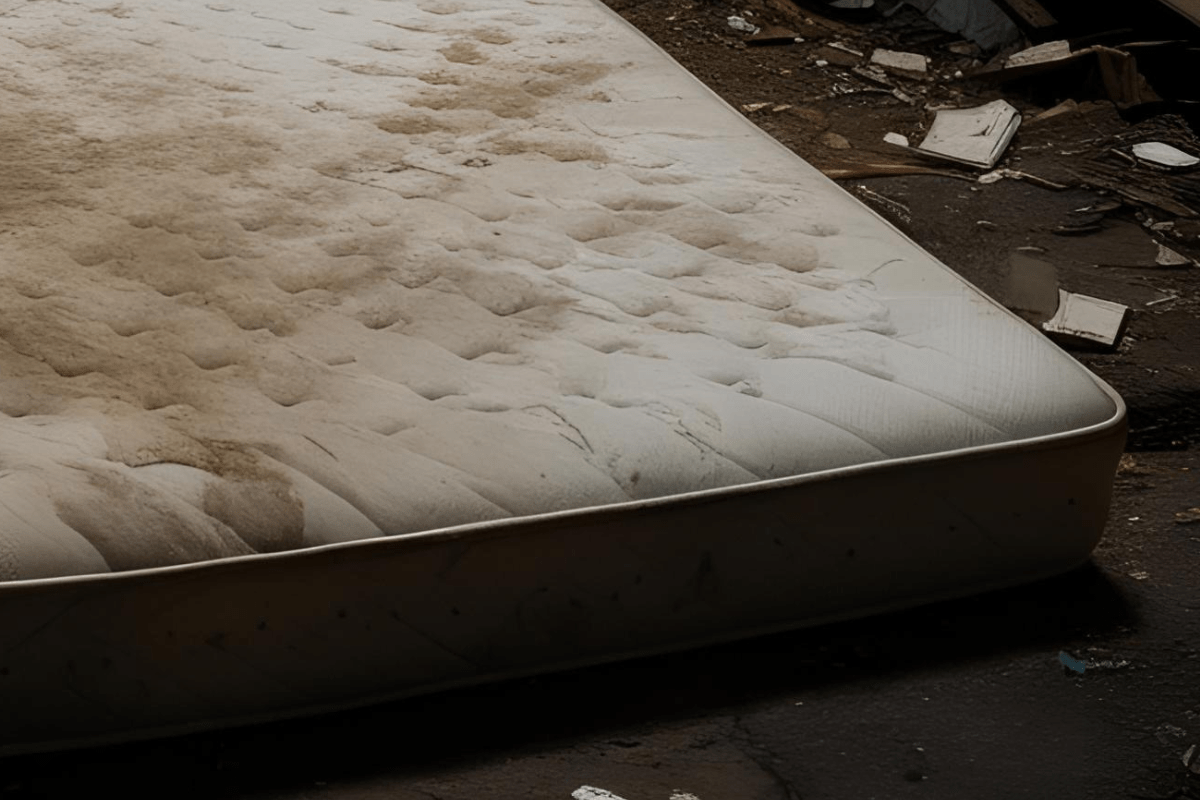
You Can Feel Your Partner Moving
Sleeping next to someone should be a peaceful experience, but it can be tough when every little movement they make wakes you up. A mattress that doesn’t properly isolate motion can turn a good night’s sleep into a restless one, with both of you tossing and turning all night long.
Foam and pocketed coils are commonly used in modern mattresses to absorb movement, so you don’t feel every shift your partner makes. If you’re constantly waking up from their movements, it might be a sign your mattress is no longer up to the task.
A mattress with better motion isolation can transform how well you sleep together. Investing in one that minimizes disturbances could help restore the quiet and uninterrupted rest you both deserve.
You’re Sneezing Or Itching More At Night
You might notice more sneezing or itching at night, and it’s not just coincidence. Your mattress can be the reason why, especially if it’s been around for a while. Dust mites, bacteria, and even mold thrive in older beds, creating an environment that can trigger allergy symptoms.
If you’re waking up with more sneezing or skin irritation, it could be time to consider a change. Old mattresses tend to trap allergens, and replacing it with a fresh one can give you the chance to start over. Adding a hypoallergenic mattress cover can act as an extra layer of defense.
Swapping out your mattress might seem like a big step, but it could significantly improve the quality of your sleep. By getting rid of the allergens lurking in your bed, you’re giving yourself the opportunity to breathe easier and wake up feeling more refreshed.
You Sleep Better Somewhere Else
You’ve probably had that experience where you sleep soundly in a hotel or at a friend’s house but struggle to get comfortable in your own bed. It’s not just a coincidence. It could be a sign that your mattress isn’t holding up as well as it should. Over time, mattresses wear out, and the support they offer decreases, making it harder to get restful sleep at home.
When you start comparing your sleep quality at different places, you might notice how much your mattress impacts your rest. You get used to the discomfort over time, but a change in environment can make the issues clearer. If you wake up feeling rested elsewhere, it’s a good clue that your mattress at home isn’t supporting you the way it used to.
Your bed should give you that same comfort and support you experience in other places. If it doesn’t, it might be time to think about replacing it. We all deserve a good night’s sleep, and that starts with the right mattress that suits your needs and keeps you feeling refreshed every morning.

You’ve Had Major Life Changes
After going through some major life changes, you may notice your mattress isn’t quite the same as it used to be. Your body can shift in different ways, whether it’s from weight changes, an injury, or simply aging. What felt comfortable before might not give you the support you need now.
If you’re waking up feeling sore or uncomfortable, it could be a sign that your mattress is no longer right for you. Your body might crave a firmer or softer surface, or maybe it’s looking for more targeted support in certain areas. This is the perfect time to explore different options and see what works best for your new needs.
Your bed should feel like a place where you can recharge and rest, not a source of discomfort. Testing out mattresses that align with your current body type and sleep preferences could make a huge difference in how you feel day-to-day. It’s worth taking a look at what’s out there.
Final Thoughts
Replacing a mattress can feel like a tough call, especially considering the price. But think about the long-term impact on your well-being. If you’re waking up sore or restless every morning, it could be time to consider a change. A mattress that’s past its prime won’t just leave you tossing and turning, it can lead to bigger health problems down the road.
If your mattress is sagging or you’re noticing lumps, it’s not just an aesthetic issue. These physical changes mean your mattress isn’t giving you the support it used to. Over time, that lack of proper alignment can lead to back pain or other joint issues.
The truth is, poor sleep adds to stress and can affect your overall health. If your mattress is making it harder to rest, it’s only going to get worse. It’s one of those things you don’t want to wait too long to address, so paying attention to these signs can save you from bigger headaches later on.
To choose the right mattress, consider your personal needs and preferences. The best time to buy a mattress is when you notice signs of wear and tear or discomfort, and the amount you should spend depends on factors like your budget and the quality you’re looking for.

